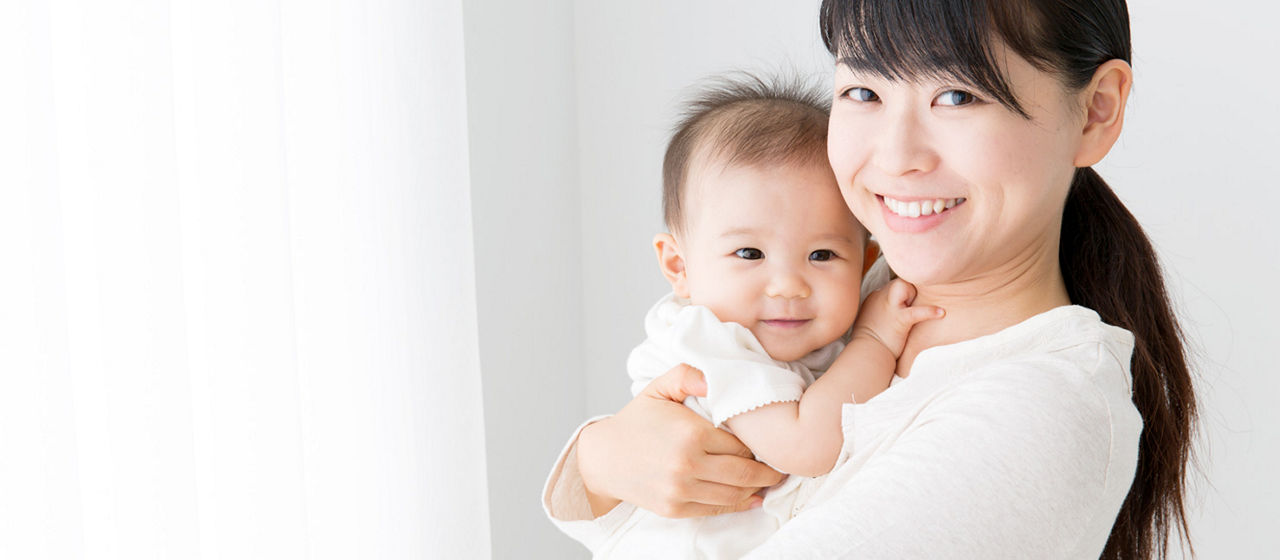Breastmilk is the best for babies. The World Health Organisation recommends exclusive breastfeeding for the first six months of life. Unnecessary introduction of bottle feeding or other food and drinks will have a negative impact on breastfeeding. After six months of age, infants should receive age-appropriate foods while breastfeeding continues for up to two years of age or beyond. Consult your doctor before deciding to use infant formula or if you have difficulty breastfeeding.
- Week 1
- Week 2
- Week 3
- Week 4
- Week 5
- Week 6
- Week 7
- Week 8
- Week 9
- Week 10
- Week 11
- Week 12
- Week 13
- Week 14
- Week 15
- Week 16
- Week 17
- Week 18
- Week 19
- Week 20
- Week 21
- Week 22
- Week 23
- Week 24
- Week 25
- Week 26
- Week 27
- Week 28
- Week 29
- Week 30
- Week 31
- Week 32
- Week 33
- Week 34
- Week 35
- Week 36
- Week 37
- Week 38
- Week 39
- Week 40
As individual as runs every pregnancy, so too are the emotions after giving birth. Many women feel only joy and happiness. And just as normal, when the emotions go haywire is.
Finally is your baby in the world! In front of you is an emotionally profound and wonderful experience: the phase of intensive familiarization and the associated intense emotional development to the little creatures, for you are now in charge. Experts call this very close emotional bond between mother and child "Bonding".
Bonding - a special bond
The kick-off of getting to know and the bonding is in the ideal case is already the first physical contact after birth. Many women experience it as overwhelming sense of love and tenderness, they flooded once your baby is placed in her arms for the first time: You would do anything to protect his child, and happy to see. A role is played by the hormones oxytocin, prolactin, endorphins and adrenaline, which are released immediately after birth and provide radiant happiness - the best preparation for this first acquaintance. Therefore, experts recommend the physical contact between mother and baby in the first hour after birth - even in the delivery room, in a quiet atmosphere and subdued lighting.
But do not worry if the bonding has come too short in the hustle and bustle of the county hall. The event of the birth should not be overstated in this regard. Bonding is a process and takes time. Often one feels after birth also just exhausted, battered and dejected. Just 2 to 3 days later, many women find in a rollercoaster of emotions. Also this is quite normal and no cause for alarm.
Bonding takes time
A Deep Commitment to your baby develops gradually in the first weeks and months.
Baby Blues is not uncommon
Usually only the pregnancy hormones are the so-called Baby Blues blame that sink rapidly after the big event. The placenta, which has produced a lot of happiness hormones during pregnancy is no longer there: The Endorphin production is drastically reduced, the estrogen levels go back to normal on "not pregnant" These hormonal changes are not easy to work with from the baby blues are between 50 to 70 percent of all women affected. Some mothers can hardly stop crying, are irritated and extremely sensitive. Others feel numb and infinitely tired.
How you can help as a partner
The baby blues usually disappears as quickly as he came, and a "fear of strangers" between mother and child is transformed into a rule with the weeks and months in a deep bond. You as a partner can do a lot to support this process of bonding. Your wife is exhausted, confused, or feels overwhelmed after the birth of her feelings? Talk to her about it. Be there for her and show her that you understand them. Remember what a tremendous achievement of the bodies of your partner has provided in recent months. He needs time and rest to get used emotionally to the new situation.
Support your partner so, whenever possible in everyday life. Above all, a healthy diet is now important to ensure that body and soul come back into balance. Maybe you organize support when cooking and doing housework and bring also yourself with a. Show your partner how much you feel connected to you - then you will be the new life as a family can enjoy soon.
Depressive moods are quite normal
Depressed mood after birth are a normal reaction to the enormous changes. But if they last longer than 10 days, talk with your doctor or midwife. It could be a postpartum depression (PPD or postnatal depression).
Join our AptaAdvantage Club today to enjoy:
- Educational content to support you on your motherhood journey
- Various complimentary classes and exclusive discounts with our key enrichment partners
Kickstart your AptaAdvantage experience by signing up HERE.
Related articles

Connect with our team of experts
We provide advice and support for you on your parenthood journey




